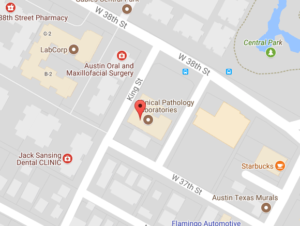As the number of COVID-19 cases continues to rise in the U.S., the number of serology (antibody) tests aimed at identifying those with prior exposure to COVID-19 have made their way into the market. These tests are regulated by the U.S. Food and Drug Administration (FDA), which requires all commercially marketed serological tests to apply for and receive an Emergency Use Authorization (EUA) in order to market these tests to the public. The FDA also provides recommended performance standards that these tests should meet. As of June 17, approximately 18 commercial serological tests have been granted EUAs, while over 120 tests are currently on the market.
Serology tests have several limitations that make correct interpretation of the results critical. There is still so much unknown about immune status for the novel virus. Limitations to be aware of include:
- False positive results: Serological testing for disease with a low prevalence in the population (such as the case in the U.S. and Travis county) present inherent challenges with interpretation of positive results. Even high performing tests with high sensitivity and specificity will return false positive results when disease prevalence is low, as is currently the case with COVID-19. Let’s take for example, a community of 100 individuals with a disease prevalence of 5%. If a test with a specificity of 95% was used in this population, it would be expected to return 5% false positives, so 5 out of the population of 100. 5 true positives would also be expected, as the disease prevalence is 5%. Overall, this test would return 10 positive results. However, only half of those results would be accurate, which shows the inherent limitation of these tests in low disease prevalence states. Once the disease prevalence is higher, the concern about false positives becomes somewhat mitigated, however, this is not the current reality with COVID-19.
- Cross-reactivity: Cross-reactivity occurs when a test for antibodies for SARS-CoV-2 identifies not only antibodies for this virus, but also for other coronaviruses, such as those that cause the common cold. For tests where cross-reactivity is possible, antibodies for other coronaviruses may result in a positive result even when the patient was not infected with COVID-19.
- Immune status: Given that COVID-19 is a novel virus, there is much that we don’t know about what, if any, immunity it may confer to those exposed and recovered from the infection. According to the FDA and the CDC, there is currently no available evidence showing immunity to COVID-19 after infection. While individuals typically develop some type of immune response after exposure to most viruses, it is not yet clear when an immune response develops after COVID-19 infection, how strong this immune response may be, and how long the immune response may last.
Recommendations from the Centers for Disease Control and Prevention (CDC) and the American Medical Association (AMA):
- Serology tests should not be used as the sole basis of diagnosis of COVID-19 infection.
- Use of serology tests should currently be limited to population-level seroprevalence study, evaluation of recovered individuals for convalescent plasma donations, and in other situations where they are used as part of a well-defined testing plan and in concert with other clinical information by physicians well-versed in interpretation of serology test results.
- Serology tests should not be offered to individuals as a method of determining immune status. Individuals receiving positive test results may falsely assume it is safe to discontinue physical distancing. The AMA and CDC recommend all individuals to continue to abide by physical distancing recommendations, and face covering and shelter in place requirements.
- Serology tests should not currently be used as the basis for any “immune certificates.”
- Serology tests should not be used to inform decisions to return to work, or to otherwise inform physical distancing decisions. Doing so may put individuals, their household and their community at risk.
- Serology tests should not be used to make decisions about grouping persons residing in or being admitted to congregate settings, such as school, dormitories, or correctional facilities.
Currently, the prevalence in Travis County is less than 1%. Because of this low prevalence, the serology antibody test will yield a high percentage of false positives. At this time, we are not recommending routine serology testing. These tests may play an important role in determining the overall prevalence of COVID-19 in the U.S. population, and may also be important in determining the prevalence of asymptomatic infections. While these tests will undoubtedly play an important role in population-level studies going forward, they are not without limitation and we must be well-versed in these limitations in our current environment and have a strong understanding of both the test and the potential results.





